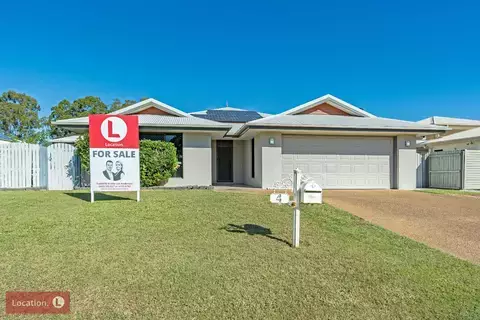What Should I Consider Before Buying Hobby Farms In QLD 4670?
Corps
If you're dreaming of wide open spaces, peaceful rural living, and the chance to grow your own food or raise animals, then purchasing one of the hobby farms QLD 4670 has to offer might be the perfect lifestyle change. The Bundaberg region, located in postcode 4670, boasts fertile soil, friendly communities, and a climate ideal for small-scale farming.
However, before diving into this idyllic rural lifestyle, it's important to understand what owning a hobby farm really involves. As a trusted real estate expert, Scott Wade has helped many buyers transition from city living to rural life. He often emphasizes the importance of preparation, planning, and knowing what to expect. Here’s what you need to consider before purchasing your own piece of countryside paradise.

Clarify Your Purpose
Start by asking yourself: why do you want a hobby farm? Some buyers want to grow fruit and vegetables for personal use. Others dream of keeping chickens, goats, or even horses. For some, it’s simply about having space to breathe and escape the urban grind.
Your purpose will influence the type of land, infrastructure, and facilities you’ll need. Hobby farms QLD 4670 come in various sizes and layouts, so knowing your goals helps narrow down your options.
Check Zoning and Land Use Regulations
Not all rural land is created equal. Before buying, research local zoning laws, especially those set by the Bundaberg Regional Council. Zoning will affect what you can and can’t do on the property.
Some areas may limit animal numbers or types of crops. Others may have restrictions around sheds, fencing, or dwellings. Scott Wade recommends checking council regulations early in the process to avoid costly surprises down the track.
Consider Water Supply and Irrigation
Water is crucial for any hobby farm. When inspecting hobby farms QLD 4670, ask about the water sources available. Does the property have a bore, a dam, rainwater tanks, or town water connection?
Also, consider whether the water supply is reliable and suitable for your intended use. If you plan to irrigate crops or maintain a garden, you’ll need a system in place to ensure consistent water availability—especially in drier months.
Inspect the Soil and Land Condition
The fertility and composition of the soil will directly affect your success as a hobby farmer. Before purchasing, it’s a good idea to get a soil test done, particularly if you intend to grow specific crops.
Look for land that’s well-drained, relatively flat or gently sloping, and not prone to flooding. Scott Wade often points out that areas around Bundaberg are known for their rich, volcanic soils—ideal for growing everything from sugarcane to avocados.

Evaluate Access and Location
How far is the property from essential services like shops, schools, and healthcare? Some hobby farms QLD 4670 may be quite remote, which is perfect for those seeking solitude but less ideal for families with children or people needing regular medical care.
Also, check the condition of access roads. Are they sealed or gravel? Can large vehicles access the property? Reliable access is especially important if you plan to bring in supplies or sell produce.
Check Existing Infrastructure
Buying a property with the right infrastructure can save you time and money. Look for features such as:
- Fencing in good condition
- Sheds and storage buildings
- Established gardens or orchards
- Stockyards or animal shelters
- Rainwater tanks or irrigation systems
The more that’s already in place, the easier it will be to get your hobby farm up and running. Scott Wade encourages buyers to make a checklist of their "must-haves" versus "nice-to-haves" to help evaluate different listings.
Understand the Costs of Ownership
It’s easy to romanticise farm life, but it comes with responsibilities and costs. Maintaining a hobby farm takes time, physical effort, and ongoing financial investment. Equipment, fencing, animal feed, repairs, and water management can all add up quickly.
Speak to locals, attend rural lifestyle expos, or consult professionals to get a realistic sense of the ongoing costs. Also, ask Scott Wade about property rates, insurance, and rural loan options specific to hobby farms QLD 4670.
Learn About Local Pests and Weather Conditions
Bundaberg has a beautiful subtropical climate, but it also comes with weather extremes like heatwaves, summer storms, and occasional floods. Pest management is another factor to consider—especially if you’re growing food.
Ask about common regional pests and what preventive measures are in place. Knowing what to expect can help you design a more resilient farming plan.
Think Long Term
Before you commit to rural living, consider how your needs might change in five or ten years. Will you need more space for growing children? Are you planning to retire here? Will managing a larger block still be practical later in life?
Scott Wade advises clients to think long-term and choose a hobby farm that aligns not just with their current lifestyle—but with their future goals as well.
Final Thoughts
Purchasing one of the hobby farms QLD 4670 has to offer can be a life-changing decision. It’s an opportunity to reconnect with nature, enjoy a peaceful lifestyle, and create something rewarding with your own hands. But it’s not a decision to rush.
By considering your goals, researching zoning, evaluating the land and infrastructure, and seeking expert guidance from professionals like Scott Wade, you’ll be better prepared to make a smart and satisfying investment in rural property.
Ready to find your dream hobby farm in the Bundaberg region? Reach out to Scott Wade today and explore listings tailored to your lifestyle needs and rural aspirations.









commentaires